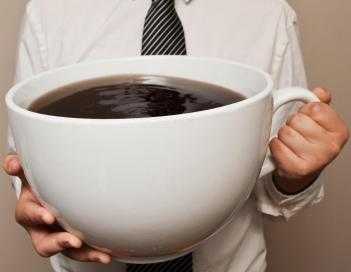Share your coffee stories with us by writing to info@comunicaffe.com.
NEW YORK, U.S. – Research suggests most of us don’t need the caffeine bump when we first wake up and actually get more bang from the caffeine in our coffee if we wait an hour after waking up to drink it.
But what about our bleary-eyed, don’t-talk-to-me-until-my-coffee grogginess?
For healthy sleepers — those of us who don’t have insomnia — the hormones that make us alert are at high levels when we first wake up.
“Shortly after waking is probably one of the high points of the day,” says Dr. W. Christopher Winter, a sleep medicine expert at Charlottesville Neurology & Sleep Medicine in Virginia.
“It is the time when…you would be at the lowest point at the sleepiness spectrum.”
The hormones melatonin, which promotes sleepiness, and adenosine, which suppresses arousal, are at their lowest levels when we first wake up. Plus, “the neuropeptide that promote vigilance, hyopcretin, is at its highest levels,” Winter says.
That means our bodies are raring to go even without a coffee perk up.
Because it takes caffeine about two hours to reach its peak in the body, a later cup of coffee allows the caffeine to be at full force when the body most needs it.
Everyone experiences a natural dip in wakefulness during the later morning hours, says Dr. Joe Ojile, founder and CEO of Clayton Sleep Institute in St. Louis. Delaying morning coffee a bit, counteracts that late morning slump.
The less, the better
Of course, you may ask why not the first thing coffee AND midmorning coffee? After all, more than half of adults over the age of 18 drink a cup each day, with the average being 3.1 cups, according to the National Coffee Association.
Unfortunately, with coffee, the more you drink, the more your body gets used to the caffeine signal, and stops responding the same way.
In other words, the less you consume, the better it works.
The best way to have an optimal effect of caffeine is to limit consumption to about 300 mg per day, and consume it ONCE a day, at the time you want to be most alert, and want the maximal effect, says Madelyn Fernstrom, health and nutrition editor for NBC News.
Do coffee naps work?
Another way to time caffeine consumption to work with the body’s natural systems is ingesting it before a quick snooze. “Coffee naps” — drinking coffee before taking a 30-minute nap — helps some people feel even more alert afterward.
That’s because people sleep during the time it takes the caffeine to kick in.
“The caffeine is actually hitting your system when you are waking up,” says Winter. “I think there is a lot of positivity to a nap and that is very wakefulness promoting and the caffeine is very wakefulness promoting.”
Be aware there are times when caffeine does more harm than good. Ojile recommends that people stop drinking caffeine in early afternoon to avoid sleep disturbances.
And, while many swear by bulletproof coffee — hot coffee with butter and MCT (medium chain triglyceride) oil — experts say there’s no scientific research that shows it works better than regular.
So what should we do right after rolling out of bed? Workout. The extra energy boost from the exercise increases wakefulness, says Winter.
Meghan Holohan















